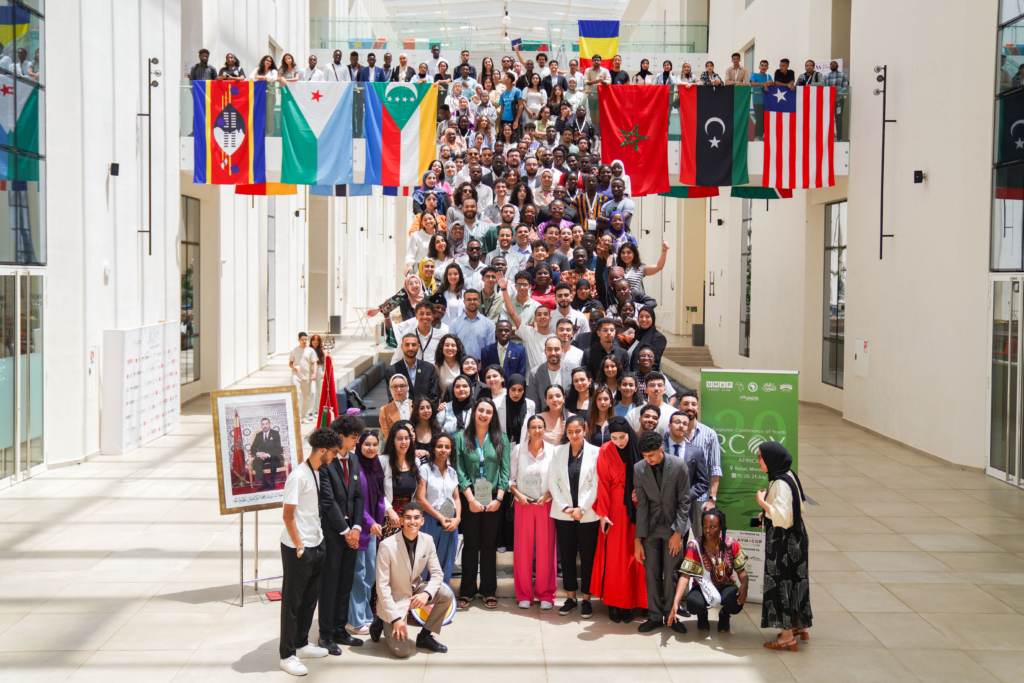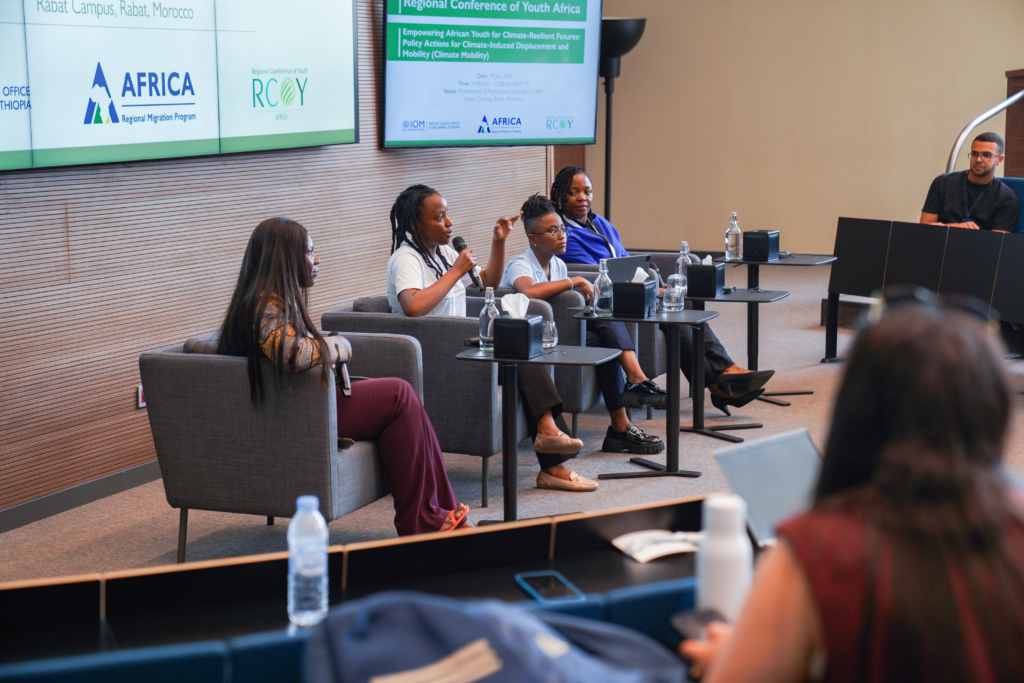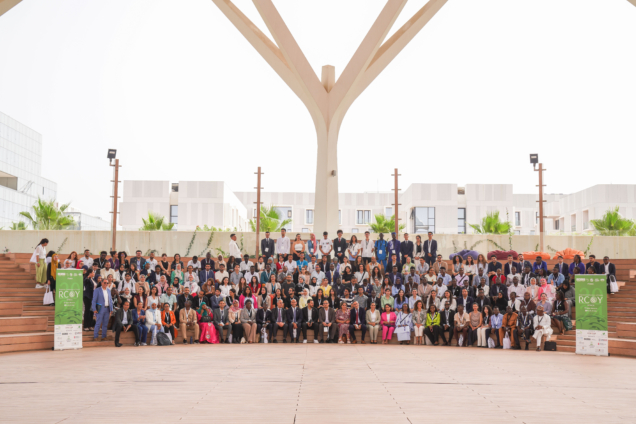Young people across Africa continue to take action against climate change. The significant disparity between their engagement at the grassroots level and their influence in high-level policy discussions is stark and unsustainable.
The voices of African youth continue to be underrepresented in spaces where crucial decisions are made.
There is the need to resolve this imbalance that the 2024 Regional Conference of Youth in Climate Change for Africa (RCOY Africa) was organized, under the umbrella of the United Nations Framework Convention on Climate Change (UNFCCC).
Africa stands at the forefront of the global climate crisis, its vulnerability magnifies the already significant challenges faced by its young population.
As a continent where opportunity is often scarce, climate change threatens to further constrict the pathways to prosperity for millions of young Africans.
This is critical and demands not just urgent action, but a fundamental shift in how we approach climate solutions and policy-making.

Designed to amplify the voices of young Africans in the global climate dialogue, RCOY Africa provides the opportunity for youth climate activists and organizations to mobilize, convene, and strategize.
RCOY Africa discusses and develops respective outputs, which feed into national and regional climate policy-making as well as climate negotiations.
This pioneering initiative aims to bridge the gap between youth activism and policy influence by providing a structured, empowering platform for Africa's young climate champions. Through a carefully curated program of training, dialogue, and collaboration, RCOY Africa is nurturing the next generation of African climate leaders.
At its core, the conference aimed to achieve crucial objectives:
- Bring together 250 young leaders from across Africa to facilitate meaningful discussions, and foster a network of young climate leaders, stakeholders, and organizations, facilitating knowledge exchange, capacity building, and collaborative action.
- Create a platform for young African leaders to share their lived experiences, solutions, and priorities related to climate change.
- Develop a unified Pan-African Climate Action strategy informed by local realities and regional needs, driving impactful climate action throughout Africa.
- Ensure that African youth voices are heard at COP negotiations, advocating for policies that address the continent's unique challenges and prioritize climate justice.
- Establish a long-term framework for youth engagement in climate action.
The conference focused on five interconnected themes, each crucial to building a sustainable and resilient future for Africa - Adaptation and Resilience; Climate Finance, Green Jobs, and Sustainable Entrepreneurship; Water, Energy, Food, and Ecosystems Nexus; Nature-Based Solutions; and Youth Empowerment and Capacity Building.
Hinged on these, thirteen strategic capacity building and policy workshops, as well as consultations, were held to equip the youth with the necessary skills for effective leadership and advocacy for influencing policy at national, regional, and global levels like COPs, SBs, and Summits of the Future.
A key outcome of the conference is the collaborative development of the African Youth Statement, led by organizations like the Green Africa Youth Organization (GAYO), African ID FGSES-UM6P, Moroccan Youth Negotiators Council (MYNC), African Youth Initiative on Climate Change (AYICC), AfriClimActiv Africa Organization, Youth Mobilization for COP (AYM4COP), etc.

This comprehensive document contains the collective vision, concerns, and proposed solutions of Africa's youth regarding environmental and sustainability issues ensuring that the perspectives of young Africans are not just heard but actively considered in global decision-making processes.
The African Youth Statement will play a crucial role in two upcoming global events. The first is the Summit of the Future 2024, which informs discussions on long-term sustainability goals and highlights the role of youth in shaping a resilient future.
The second, which is COP29 (29th Conference of the Parties to the UNFCCC) brings African youth perspectives to the forefront of international climate negotiations and advocates for policies that address the unique challenges faced by young Africans.
Call to Action
The passion and dedication demonstrated by the young participants at this conference are proof of the power of youth-led climate action. Today’s African youth call on governments, organizations, and individuals across Africa and beyond to support and amplify these voices.
RCOY Africa is not just a conference, it is the launchpad for a youth-led African climate revolution. Together, we can build a more sustainable, equitable, and resilient future for Africa and the world. The time for action is now, and the youth of Africa are leading the way.
Read also : African youth urged to adopt healthy eating habits
Latest Stories
-
Banks to continue to shift towards digital banking services – Deloitte
4 minutes -
GSE poised for yet another bullish run in 2025
15 minutes -
Cedi to end 2025 around GH¢17.70 to one dollar – Report
22 minutes -
Akufo-Addo to host a tour of Jubilee House with Mahama before inauguration
26 minutes -
T-bills auction: Government records 24% oversubscription; but cost of borrowing increases
30 minutes -
Diana Hamilton to release new single ‘Perfect God’ on January 9
32 minutes -
We’ve not met A-Plus or authorised anyone to engage him on our behalf – NPP
34 minutes -
Free SHS to create a generation of dummies – Dr Sa-ad Iddrisu
46 minutes -
A new dawn for Ghana: A bright future awaits in 2025
1 hour -
Ghana is broke, gov’t is struggling to fund handing-over ceremony – Economist claims
1 hour -
Premature commissioning of Sewua Hospital: A breach of public trust and contractual integrity
1 hour -
We expect inflation to hit single digit by first quarter of 2026- BoG Governor
1 hour -
GPL: Vision FC boss Nana Agyemang hopes win over Nsoatreman lifts players ‘spirits’
1 hour -
Justice Srem Sai opposes swearing-in of Patrick Boamah, 2 others amid legal challenges
1 hour -
Partey charges Arsenal to be ‘perfect’ in quest for league title
2 hours

